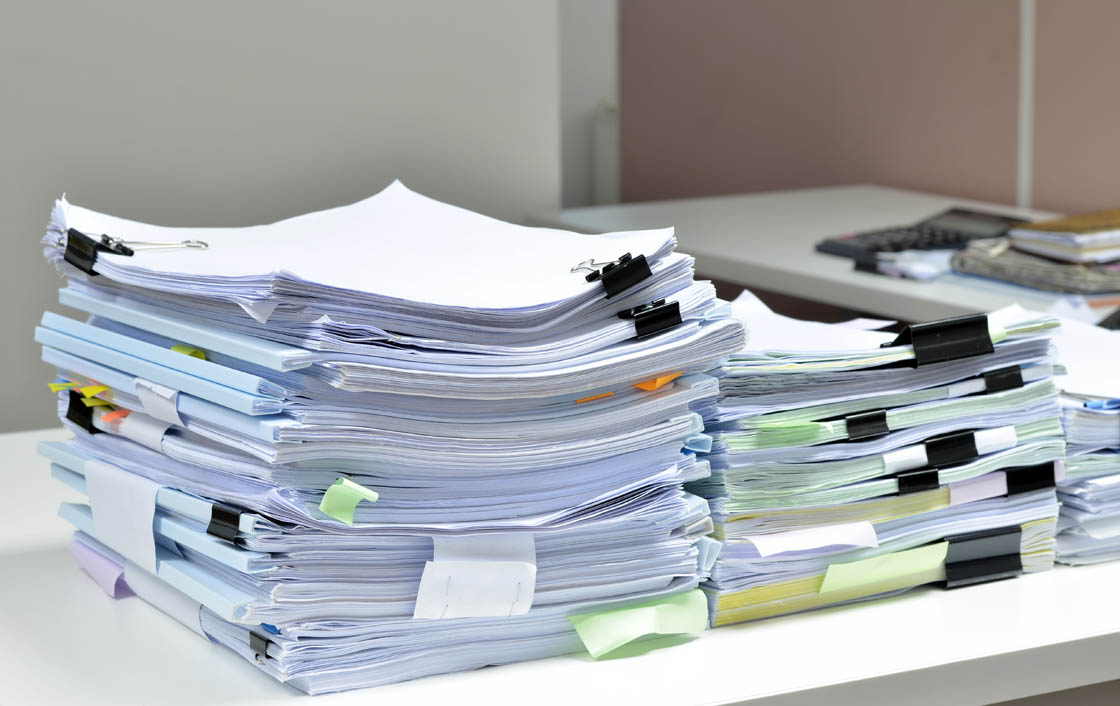The Assignment of Documents and Materials Containing State Secrets in the People's Public Security Forces: How is it Implemented?
The Ministry of Public Security has just promulgated Circular 38/2020/TT-BCA stipulating the state secret protection work in the People’s Public Security force.
According to regulations, the transport, delivery, and reception of documents and materials containing state secrets shall be conducted by officers and soldiers directly involved in state secrets; correspondents, clerks of the Ministry of Public Security; correspondents, clerks of the Public Security of units, and localities. Officers and soldiers directly involved in state secrets shall only transport, deliver, and receive documents and materials containing state secrets upon the direction of the People's Public Security unit leadership.

Illustration (Source: Internet)
Circular 38/2020/TT-BCA stipulates the delivery of documents and materials containing state secrets as follows:
Step 1: Before delivering documents and materials containing state secrets, register them in the “Outgoing State Secret Registration Book”. Documents and materials containing "Top Secret" level secrets are only summarized when the authorized person certifying the state secret agrees;
Step 2: Documents and materials containing state secrets must be in separate envelopes or packages. The paper for the envelope must be durable, water-resistant, and opaque; the adhesive must be strong and difficult to peel off;
In case documents and materials containing "Top Secret" secrets must be protected by two layers of envelopes: The inner envelope indicates the number, symbol of the documents and materials containing state secrets, the recipient's name, stamped "Top Secret," and sealed with the unit's stamp outside the envelope; if sent to a specific responsible person, stamp “Only the person named can open.” The outer envelope should be marked normally and stamped with the symbol "A";
Documents and materials containing "Secret" and "Confidential" levels are protected by one envelope, stamped with the letters "B" and "C" corresponding to the secrecy level of the documents and materials inside;
Step 3: Delivery of documents and materials containing state secrets must be recorded in the “State Secret Transfer Book.”
Additionally, the reception of documents and materials containing state secrets is conducted as follows:
Step 1: After receiving documents and materials containing state secrets, register them in the “Incoming State Secret Registration Book”;
Step 2: In case the envelope of documents and materials containing state secrets bears the stamp "Only the named person can open,” the recipient should note the symbol outside the envelope, and not open it but immediately transfer it to the named person. If the named person is absent and the envelope is stamped “Urgent,” transfer it to the People's Public Security unit leadership or a person authorized by the unit leader to handle it;
Step 3: If documents and materials containing state secrets are received without proper protective measures, inform the unit’s leadership or the named person (for specific addressees) to resolve, and notify the sender for remedial actions. If signs of tampering, opening, or substitution are detected, the recipient must report immediately to the unit head for resolution.
Note, the sending and receiving units of documents and materials containing state secrets must cross-check the quantity and inspect the sealing and packaging. Any deficiencies or errors should be addressed by the sender before registering and signing the receipt.
For documents and materials containing the stamp “Recall Document,” the People’s Public Security units or officers must return them by the deadline stated on the document.
The transmission of electronic documents containing state secrets on the Internet, computer networks (intranets, WAN), and telecommunications networks are regulated according to cryptography law; the transport and delivery of cryptographic products follow cryptography law as well.
When documents and materials containing state secrets are managed via computer databases, they must be printed for signature upon transfer and recorded in a logbook for management. Computers used for registering state secrets must not connect to the Internet, computer networks, and telecommunications networks, except as regulated by cryptography law.
As for the registration, incoming book, and transfer book templates for state secrets, follow the regulations outlined in Circular 24/2020/TT-BCA dated March 10, 2020, issued by the Minister of Public Security for use in state secret protection.
For more details, see: Circular 38/2020/TT-BCA effective from July 1, 2020.
Thu Ba
- Number of deputy directors of departments in Vietnam in accordance with Decree 45/2025/ND-CP
- Cases ineligible for pardon in Vietnam in 2025
- Decree 50/2025 amending Decree 151/2017 on the management of public assets in Vietnam
- Circular 07/2025 amending Circular 02/2022 on the Law on Environmental Protection in Vietnam
- Adjustment to the organizational structure of the Ministry of Health of Vietnam: Certain agencies are no longer listed in the organizational structure
- Vietnam aims to welcome 22-23 million international tourists in Vietnam in 2025
-

- Notable new policies of Vietnam effective as of ...
- 16:26, 11/04/2025
-
.Medium.png)
- Notable documents of Vietnam in the previous week ...
- 16:21, 11/04/2025
-
.Medium.png)
- Notable documents of Vietnam in the previous week ...
- 16:11, 02/04/2025
-
.Medium.png)
- Notable new policies of Vietnam to be effective ...
- 16:04, 02/04/2025
-
.Medium.png)
- Notable new policies of Vietnam effective from ...
- 14:51, 21/03/2025
 Article table of contents
Article table of contents
